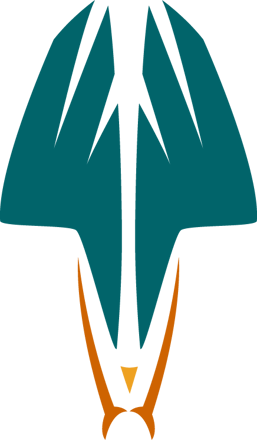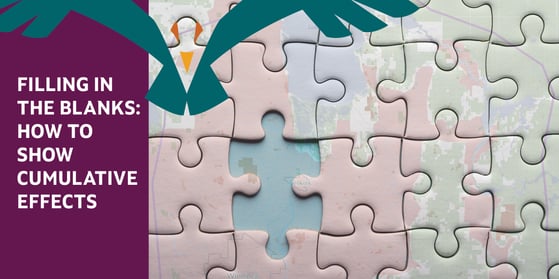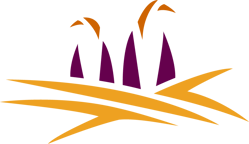
Welcome to Shared Value Solutions' biweekly funding and news digest. We hope it finds you well.
This week we share some resources about Treaty Recognition Week. We also present the latest post in our popular Indigenous Knowledge Matters blog series - highlighting the footprints that cumulative effects of decades, sometimes centuries, of development leave on Indigenous ways of life. Read on for our usual roundup of interesting new funding opportunities and inspiring stories from across Turtle Island. Stay safe and well, everyone!
Treaty Recognition Week
The first week of November in Ontario is Treaty Recognition Week. Since 2016, this week is dedicated to raising awareness about treaty rights and relationships and honours the importance of treaties. Below is a list of resources that can be used to further awareness and education on treaties — creating greater understanding of the rights, responsibilities, and relationships set out in treaties will continue to move us along the path to reconciliation.
Resources:
Treaties in Ontario: what they are and what they do | CBC
46 treaties cover what is now the province of Ontario
The Toronto Library put together a reading and watching list.
Treaties | Government of Ontario
Learn more about the treaties, treaty relationships and treaty rights that shape Ontario.
Anishinabek Nation bringing treaty education online | Nugget
“Encouraging education around treaties is an important way to help nurture and advance the vital relationship between Indigenous and non-Indigenous people,”
Truth and Reconciliation Commission of Canada: Calls to Action
Filling in the Blanks: How to Show Cumulative Effects in Indigenous Knowledge Studies

Often when we collect and display Indigenous Knowledge data on a map, defined shapes appear where there is no data at all. Like missing puzzle pieces in an otherwise rich picture of land use, these blanks on the map clearly tell the story of past and ongoing development projects that have forever changed the ability of our clients to exercise their Indigenous Rights. This week's blog post in our series Indigenous Knowledge Matters highlights the footprints that cumulative effects of decades, sometimes centuries, of development leave on Indigenous ways of life.
Indigenous Funding Programs
Here are some opportunities to check out:
Rapid Housing Initiative
A new program announced by CMHC that is allocating $500M under the Projects Stream (application based process). Indigenous governing bodies and organizations are eligible to apply. CMHC will provide up to 100% in capital contribution funding to cover eligible residential construction costs. The goal of the program is to create up to 3,000 new permanent affordable housing units, with a focus on the most vulnerable populations. The project also prioritizes energy efficient builds and homes that exceed accessibility requirements. Applications are due December 31, 2020
Read More
Indigenous Peoples Resilience Fund
Any Indigenous-led organization or Indigenous-serving organization working to foster resilience in Inuit, Metis and First Nations communities anywhere in Canada can apply for resiliency funds ranging from $5,000 to $30,000. The Fund has been accepting applications beginning on June 16th, 2020 and is ongoing. The Indigenous Peoples Resilience Fund is being developed by Indigenous philanthropic knowledge holders and is being incubated with support from Community Foundations of Canada.
Indigenous Community Support Fund
The Government of Canada announced that an additional $305 million will be added to the Indigenous Community Support Fund. It will be distributed through a combination of allocations directly to First Nations, Inuit and Métis leadership, and needs-based funding, which will be application driven. Further details will be forthcoming
Sport for Social Development Projects Funding
The Government of Canada is now accepting applications for funding for projects across the country under the Sport for Social Development Projects in Indigenous Communities initiative, with two funding streams available. The Sport for Social Development in Indigenous Communities initiative is addressing the Truth and Reconciliation Commission of Canada Calls to Action 7, 19 and 38.
Opportunities Round-up:
- The Nuclear Waste Management Organization NWMO released a draft planning framework for the transportation of used nuclear fuel, and are seeking feedback and input on the framework over the coming months.
- Fisheries and Oceans Canada (DFO) is seeking feedback on its draft policies related to Cetaceans (whales, dolphins, and porpoises) in captivity to further understand stakeholder views and interests. You can submit ideas through the online form or through e-mail. Deadline for input is November 18, 2020.
- Canada Ontario Resource Development Agreement (CORDA) funding is available for First Nations to conduct a project that promotes natural resource development, management, harvesting or conservation in Ontario. Projects can receive up to $35,000 and applications are due November 18
- CRE's Centre for Indigenous Policy and Research has launched a second round of Indigenous youth research grants.
- The MNRF want to renew the provincial trapline allocation policy to improve consistency and transparency in how registered traplines are allocated to licenses trappers throughout Ontario. Deadline for input is December 16, 2020.
- DFO is inviting comment on provisions that they could address in a new Aquaculture Act. Deadline for input is January 15, 2021.
- The MNRF is asking for comments on the Ogoki Forest Management Plan including comments on the draft Forest Management Plan and contributions to the background information to be used in planning. Deadline is January 4th, 2021.
-
The MNRF is asking for comments on their proposed changes to Ontario’s aquaculture licensing The proposed changes include exempting certain low-risk research facilities culturing fish from requiring an aquaculture license, providing the ability to change licenses and authorizations, and changing the decision-making power about what fish may be cultured from the Lieutenant Governor in Council to the Minister. Deadline is November 20, 2020.
- The MECP is accepting comments on proposed changes to regulations under the Environmental Protection Act and Ontario Water Resources Act to provide exemptions for low-risk, short-term water taking activities. These proposed exemptions allow proponents to undertake certain activities without obtaining a Permit to Take Water or registering on the Environmental Activity and Sector Registry (EASR). Deadline is November 20th, 2020.
-
The MECP is accepting comments on their proposal to streamline provincial approvals for dam owners by removing the need for certain types of dams to obtain a permit to take water. Deadline is November 20, 2020.
- Goldcorp – Porcupine Gold Mines has submitted a Mine Closure Plan Amendment for filing by ENDM as required under the Mining Act. This Closure Plan proposes rehabilitation measures for the Owl Creek property, an inactive mine site.
- Goldcorp – Porcupine Gold Mines has submitted a Mine Closure Plan Amendment for filing by ENDM as required under the Mining Act. This Closure Plan proposes rehabilitation measures for the McIntyre Mine Tailings and Coniaurum Mine property, an inactive mine site.
- Goldcorp – Porcupine Gold Mines has submitted a Mine Closure Plan Amendment for filing by ENDM as required under the Mining Act. This Closure Plan proposes rehabilitation measures for the Aunor-Delnite property, an inactive mine site.
- The Impact Assessment Agency of Canada (IAAC) and the Government of Ontario are reopening an Environmental Assessment process for the Marathon Palladium Project, with a new proponent - Generation PGM Inc. and a new joint review panel. The Agency and the Government of Ontario invite the public and Indigenous groups to review and provide comments on the draft Amended Joint Review Panel Agreement and Terms of Reference.
- The Impact Assessment Agency of Canada has accepted an initial project description for the proposed Castle Project, the expansion of an existing metallurgical coal mine located about 29 kilometres north of Elkford, British Columbia. The Agency invites the public and Indigenous groups to review the summary of the initial project description and provide feedback related to the proposed project.
- The Independent Electricity System Operator (IESO) has announced that their Indigenous Energy Support Programs will be accepting applications. Deadline is November 13, 2020.
News Digest
Free education kit helps Ontario students learn about Indigenous treaties | CBC
'We need to create better understanding of treaties,' says Carolyn King
Government of Canada COVID-19 Update for Indigenous Peoples and communities
Prime Minister Justin Trudeau has announced an additional $200 million in funding for Indigenous communities and organizations. This funding is intended to help Indigenous early learning and child care facilities operate safely during the pandemic, adapt community infrastructure on reserve, and provide immediate support to Indigenous post-secondary institutions address increased costs and financial uncertainty resulting from the pandemic.
Indigenous moderate livelihood lobster fishery expands in Nova Scotia | Global News
Pictou Landing First Nation this week became the latest Mi'kmaw band to advance its fishing rights.
Greenhouse project in Inuit region of Arctic Quebec advances with delivery of hydroponic container to Inukjuak |Eye on The Arctic
A greenhouse project in Nunavik, the Inuit region of Arctic Quebec, reached another milestone this month with the delivery of a hydroponic container to the community of Inukjuak.
Indigenous Peoples are critical to nature-based solutions to climate change | iPolitics
Indigenous Peoples are already stewarding nearly one-fifth of the total carbon sequestered by tropical and subtropical forests, and Indigenous territories encompass 40 per cent of the world’s protected areas.'
SVS Ebooks for Download: Collect them all!
Check out our collection of informative eBooks that are available for free download:
- Pandemic-Inspired Research Innovations
- Indigenous Planning Cheat Sheet
- Indigenous Business and the Resource Sector
- Indigenous Planning Starter Kit
- Indigenous Guardians and Development
Download our eBooks here
Still Available: Free Emergency Consultation Department Support During COVID-19 from SVS
First Nations are reporting that, even in the midst of a pandemic that has many band offices closed, resource development proponents continue to send referrals to move projects forward. We have ideas on how to support. Get in touch.
SVS Update 
In our team meeting this week, we watched clips from Dialogue 3: Braiding Ways of Knowing, which included a poignant and insightful discussion with Dr. Robin Wall Kimmerer. This video sparked a conversation among team members on how Indigenous Knowledge, differing worldviews, and decision making intersect.
Like what you're reading? Want to receive it in your inbox every two weeks?
About Us: Shared Value Solutions
We are a Canadian B Corp, and we assist Indigenous Nations with support throughout regulatory processes surrounding major development projects like mines, hydroelectric facilities, transmission lines, highway expansions, oil and gas pipelines, natural resource transport applications and nuclear power.
We have deep context and experience behind the recommendations we provide, having worked for our clients on almost every major project in Canada over the last 10 years. For us, it’s all about building long-term relationships with our clients. We want to get to know you and what you want to do so we can help you move your plans forward.

